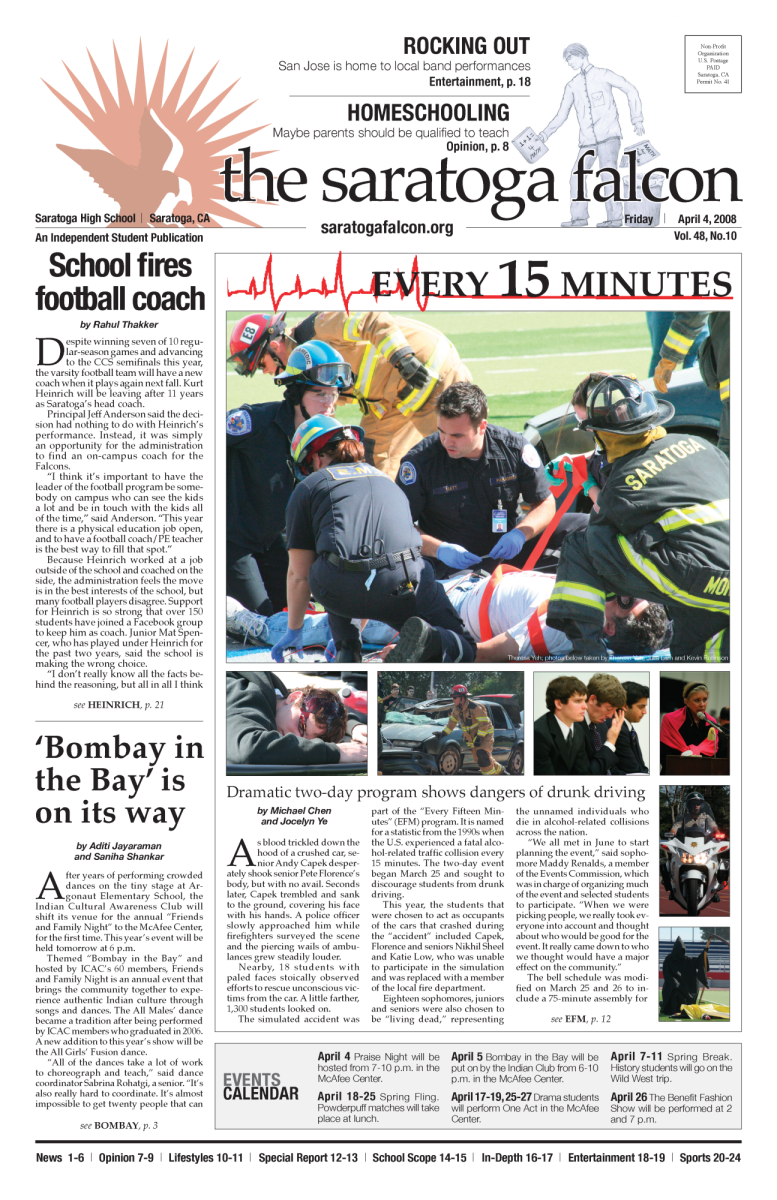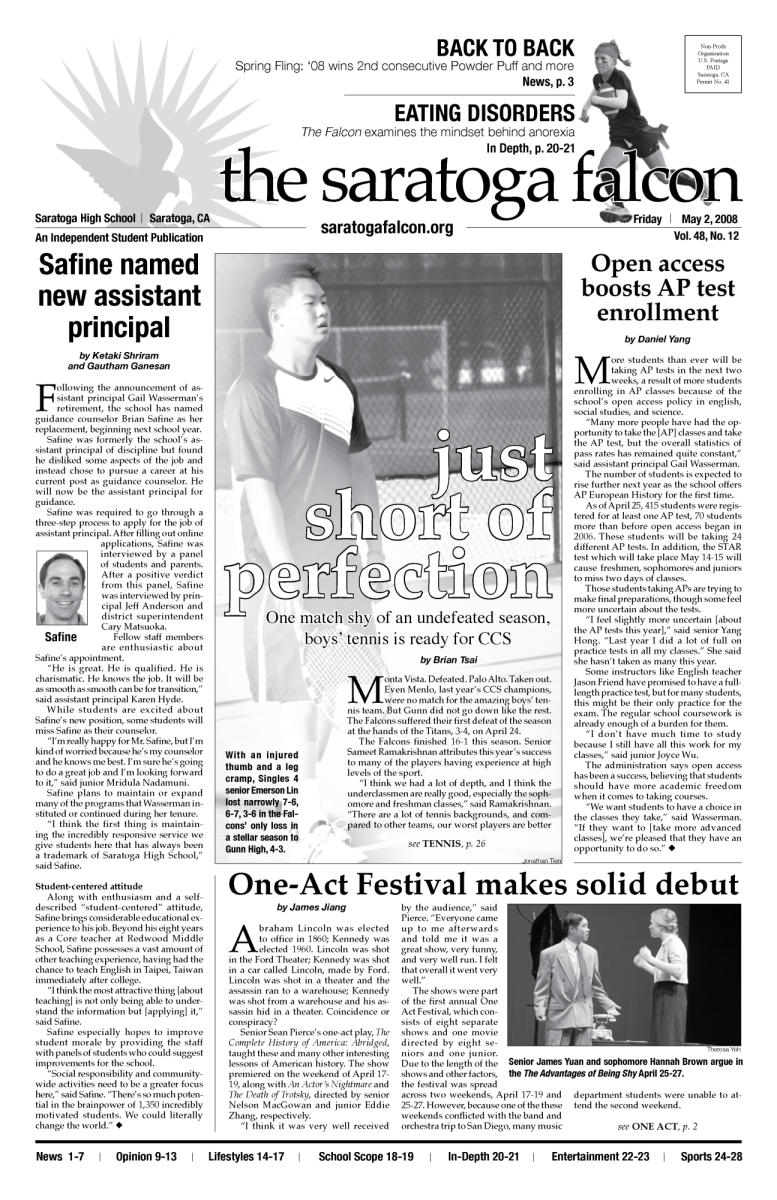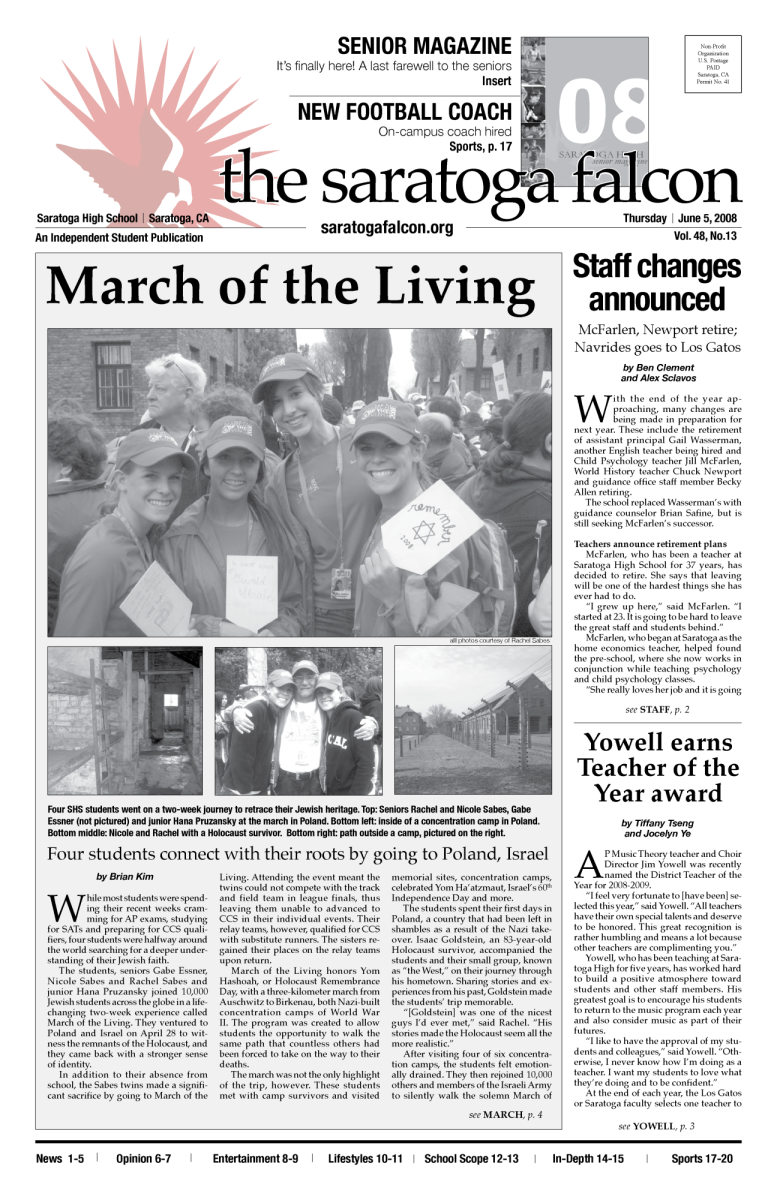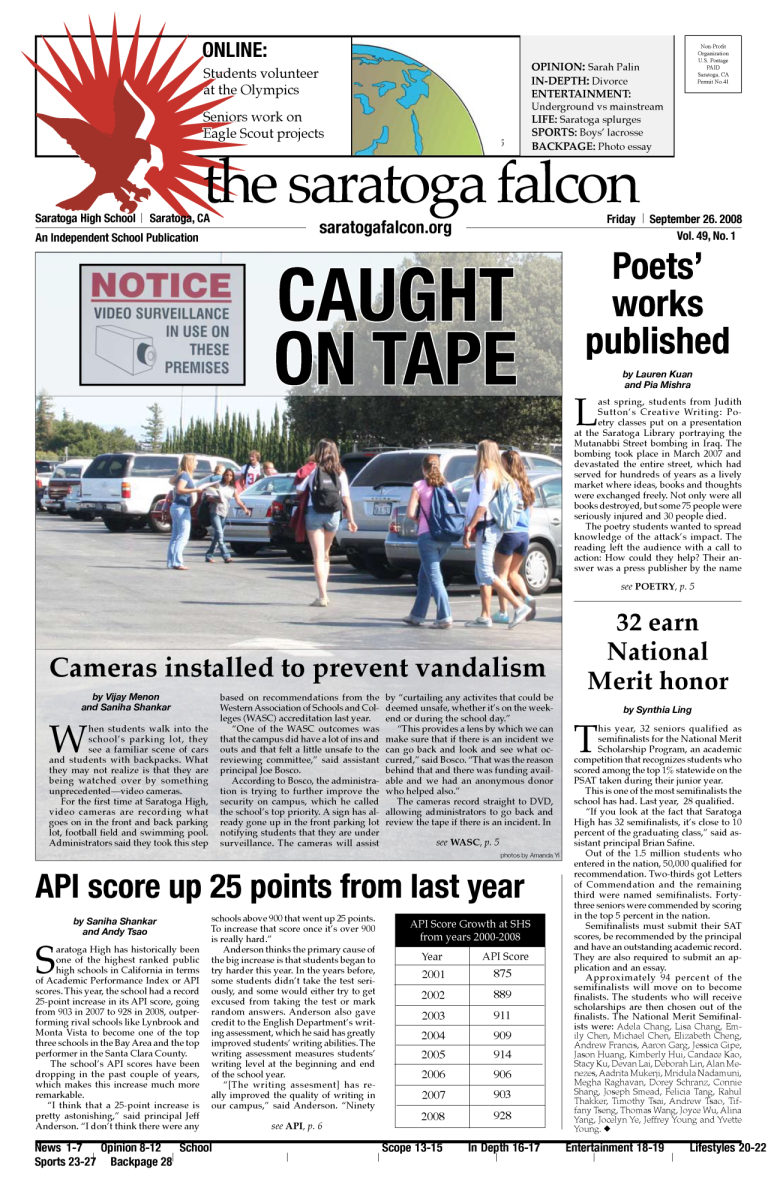Junior Malika Singh (Monta Vista High School: MVHS) was sophomore class president last year and serves on the Saratoga Youth Commission.
Senior Ishan Sharma (Cupertino High School: CHS) is his school’s ASB president and works to help improve his school by communicating with different organizations and conducting surveys for the students.
Senior Nihar Agrawal (Saratoga High School: SHS) is his school’s ASB vice president, was part of the Saratoga Youth Commission and is the co-founder of Committed 2 Community Club.
Junior Alex Mo (The Harker School: THS) is the founding president of his school’s UNICEF and Humanitarian Causes club and is one of his school’s DECA officers.
Q: How does your school make sure that students’ opinions are heard and represented throughout the school?
Singh (MVHS): [Every Thursday], we have Legislative Council, where representatives from each fifth-period class convene during tutorial, vote on different subjects and talk about anything their classes have proposed. We frequently conduct surveys at Legislative Council to get students’ opinions and allow them to make decisions.
Sharma (CHS): Our ASB has been trying to improve [by] taking in [more] student opinions. We reformed our Student Senate, [the] secondary student-government body next to ASB. In previous years, Student Senate was originally intended to give students who did not make the ASB interview process a chance to voice their opinions through bi-weekly meetings during tutorials. Like ASB, our Student Senate undergoes an application process and is open to all students, regardless of academic standing. We get a more diverse set of ideas and have a lot of freshman and sophomore applications already, and they are from [many] different sub groups, [not] just our "popular" ASB crowd.
Q: How is the school improving communication between students and staff/administration?
Sharma (CHS): I would improve communication between students and administration by working with [the staff and students] to release more surveys. [Cupertino] is working with Challenge Success from Stanford to gain analytical data on the student body. Two years ago, we asked all students to fill out a survey and we were able to pull apart tons of useful data on stress levels or how safe [students] feel on campus. All these responses have been converted to actionable goals, such as the principal teaching teachers how they can be more "relatable" to students, because one of [the] most alarming survey results we got back was that very few students at [Cupertino] had at least one adult they could go to if they had a problem. The principal gathered teachers from all departments and students in these Joint Leadership Meetings and asked for ways to increase communication between staff and students.
Mo (THS): All students work with both an adviser and a council member who help them throughout their four years on campus. By encouraging these relationships early in a student’s freshman year, they begin to feel more comfortable as student life becomes harder as an upperclassman.
Q: What are student leaders doing on campus to make school more welcoming for the student body?
Agrawal (SHS): I think what is so great about kindness on campus is that it can come in small, simple acts which are still personally impactful. I always try to say “hi” to people in the hallways who are looking down or have puffy eyes. Given how much the people around me contribute to my happiness every day, I care about how my classmates feel and if they are having a poor day, I strive to brighten their mood.
Singh (MVHS): We have clubs such as the New Student Support Club. Anyone, especially those who need help or feel unsupported, can join, and others can volunteer to help them, too. We also have Peer Counseling Club for those who also feel that they need help from other students and the advisor too. The club's goal is to raise general awareness about social and emotional health at our school and does this by scheduling sessions for those who request them and holding events in campus.
Mo (THS): We have many student leaders working to make our experiences on the Upper School campus as enjoyable as possible. With over 60 clubs on campus and many programs, most students find groups of friends who they connect with and can seek support from. Though we work together to plan events and plan logistics, we are also a close group of friends who help each other every day. By just being a respectful and outgoing student on campus, it is inevitable that you will make [other] students happy.
Q: Do you feel that there are enough resources at your school for students to go to if they need to talk to someone?
Sharma (CHS): I do feel there are enough resources, but it could probably be improved. Our counselors are severely understaffed and we only have one student advocate. That itself is a problem, and I think a lot of these [students could be helped] if teachers could maybe open up a little more or make more of an effort to connect with students.
Mo (THS): I believe that there are. With all of our amazing students and faculty members, there are more than enough people to help someone with whatever they are going through. Whether certain students use [these] resources is a different issue. Personally, I don’t feel like there is an easy solution other than just to slowly encourage [them]. Becoming comfortable with people who help you through tough times will take a little bit of work, but at Harker, I believe that everyone is willing to help someone else out.



























